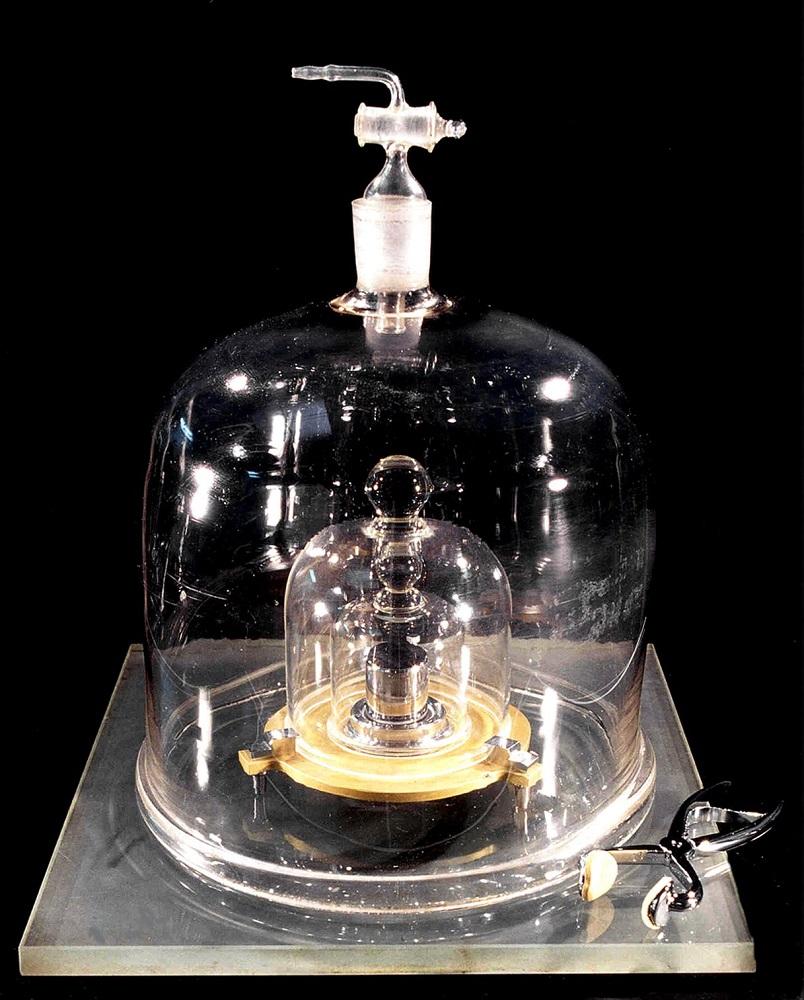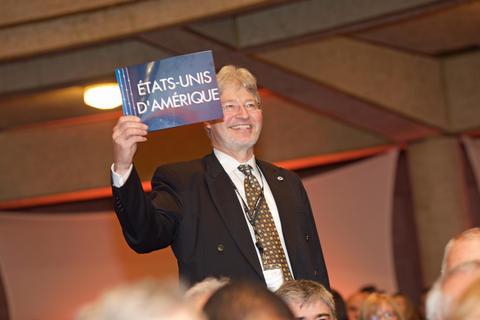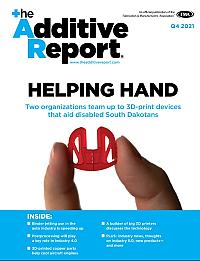Editor-in-Chief
- FMA
- The Fabricator
- FABTECH
- Canadian Metalworking
Our Publications
Categories
- Additive Manufacturing
- Aluminum Welding
- Arc Welding
- Assembly and Joining
- Automation and Robotics
- Bending and Forming
- Consumables
- Cutting and Weld Prep
- Electric Vehicles
- En Español
- Finishing
- Hydroforming
- Laser Cutting
- Laser Welding
- Machining
- Manufacturing Software
- Materials Handling
- Metals/Materials
- Oxyfuel Cutting
- Plasma Cutting
- Power Tools
- Punching and Other Holemaking
- Roll Forming
- Safety
- Sawing
- Shearing
- Shop Management
- Testing and Measuring
- Tube and Pipe Fabrication
- Tube and Pipe Production
- Waterjet Cutting
Industry Directory
Webcasts
Podcasts
FAB 40
Advertise
Subscribe
Account Login
Search
The K is dead, long live the electric K
Scientists agree to the biggest change to the metric system in nearly 140 years
- By Don Nelson
- November 20, 2018

The 140-year-old Le Grand K, a platinum cylinder used to calibrate devices that measure weight, soon will be replaced by natural constants like the speed of light.
Inside a vault in Paris sits a locked, vacuum-sealed bell jar that houses a platinum-alloy cylinder. Made in 1889 and called Le Grand K, it is the only true 1-kilogram object in the world.
Le Grand K is the physical artifact used to calibrate devices that measure mass based on the International System of Units, commonly known as the metric system.
Come spring, though, Le Grand K will be fini.
Scientists from the U.S. and 59 other countries voted at a recent conference in France to jettison Le Grand K and three other physical artifacts used to calibrate measuring devices. They also agreed to change the way measurement units are defined. The new definition for the kilogram, referred to as the “electric kilo,” comes from measuring three constants of nature: the Planck constant, the speed of light, and the cesium atom’s natural microwave radiation.
The reason for switching to natural phenomena is that artifacts change over time. Le Grand K, for example, absorbs airborne molecules when removed from its bell jar and sheds molecules when cleaned.
Constants of nature do not change. Moreover, thanks to advancements in quantum science, scientists can measure the speed of light and other fundamental constants with great accuracy.
“Using combinations of these constants and the equations of quantum mechanics, scientists created a revised unit for measuring mass … that is at least 1 million times more stable than artifacts like Le Grand K,” according to a report from the National Institute of Standards and Technology (NIST).
It is the “most significant change to the International System of Units in more than 130 years,” said NIST, which sent representatives to the conference.
Metrologists at the conference expect the change will lead to development of new technologies and reduce the cost of calibrating devices used for industrial processes and scientific instruments.
Some of the conference participants appeared in a video that shows their enthusiasm about the vote. - Ed.
About the Author

Don Nelson
2135 Point Blvd.
Elgin, IL 60123
(815)-227-8248
About the Publication
- Podcasting
- Podcast:
- The Fabricator Podcast
- Published:
- 04/16/2024
- Running Time:
- 63:29
In this episode of The Fabricator Podcast, Caleb Chamberlain, co-founder and CEO of OSH Cut, discusses his company’s...
- Trending Articles
- Industry Events
16th Annual Safety Conference
- April 30 - May 1, 2024
- Elgin,
Pipe and Tube Conference
- May 21 - 22, 2024
- Omaha, NE
World-Class Roll Forming Workshop
- June 5 - 6, 2024
- Louisville, KY
Advanced Laser Application Workshop
- June 25 - 27, 2024
- Novi, MI



























